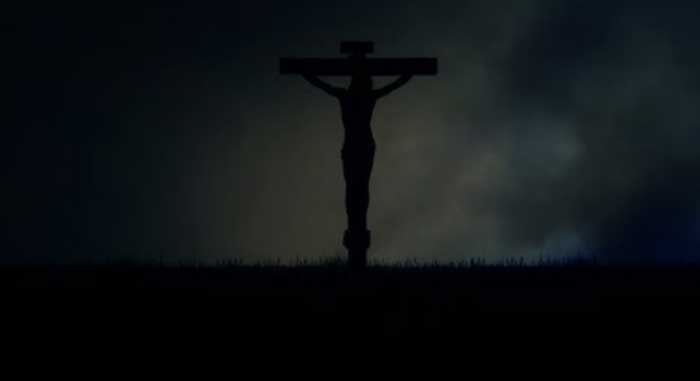Sundays Coming

Yesterday, we read about and celebrated the triumphal entry of Jesus into Jerusalem on Palm Sunday. The account is found in Matthew 21:1-9, Mark 11:1-10, Luke 19:28-40, and John 12:12-18. And as we reflected on that moment, we also looked ahead to what happened throughout the course of the next week of Jesus’ life. That Jesus would feast with his disciples one final time, sharing with them the communion meal. That Jesus would be betrayed by one of his disciples and handed over to the authorities to be questioned, beaten, and condemned to die. That Jesus would go to the cross just a few short days after this entry, with shouts all around him of “Crucify him! Crucify him!” This final week of Jesus’ life is truly a roller coaster of emotions.
This week, we also observe our final week of Lent, the season where we reflect on Jesus’ journey to the cross, and where we take the time to understand our role now, today, in the story of the cross. We have reflected on the call to give of ourselves, just as Jesus is preparing to give of himself on the cross. We spent time thinking about what it means to bring peace as Jesus brings peace rather than the sword at this crucial juncture of his life and ministry. We allowed ourselves to be reminded once our circumstances began to change dramatically that this season tells us unequivocally that Jesus is Lord. We discussed the downward journey and what it means to be a people who join the downward movement with Jesus instead of trying to get a leg up in our world today. And last week, we prepared for the darkness of those hours where Jesus is on the cross, knowing that what follows is light and the defeat of darkness, but allowing ourselves to not hide from the darkness, but to anticipate Jesus overcoming it.
This week, this final week of Lent, we continue to be surrounded by uncertain circumstances. There aren’t yet any glimmers of hope that this will end in our timing, which I’m sure for most of us would have been weeks ago rather than weeks (or hopefully not, months) still yet to come. In other words, we are living in the Saturday of the Easter story right now. The darkness has descended, the hope seems distant, and we are left wondering what comes next.
I wonder what that Saturday would have been like for the disciples of Jesus. It is a Sabbath, a day of rest, a day of special connection with God, and where the Jewish people would set aside time so that they would be set aside within the world, witnessing to the reality of their God, their confidence and trust in him that he would provide for them all that they need. But, on that particular Sabbath, for that particular group of people, I imagine that there was no rest. There was little confidence. And the trust they had placed in God certainly seemed betrayed. I wonder if words were spoken, rousing speeches given to try to boost their spirits and lift their morale or if they simply stayed silent. I wonder if spontaneous tears erupted that they couldn’t fight back. I wonder if they sat together or if they tried to have some time alone from each other.
And today, I wonder what my response would have been. I wonder how lonely I might have felt on that day. Whether I would allow myself to think that it was all true and had really happened or whether I would be in denial or shock. Whether I would have been able to do anything but feel fear or anger. Whether I would have been able to even think about something like God’s love or if that would have been too difficult for me to bear to think about.
And honestly, the responses of the disciples seem rather tame and mild when I put myself into the story in that way. That they would return to their jobs from 3 years prior or that they would have had difficulty hearing reports about the tomb being empty and Jesus appearing to others doesn’t seem too far off, and if anything, they could have been in much worse shape. They could have, as Job’s wife had encouraged Job to do hundreds or thousands of years prior, “curse God and die.” But they didn’t.
They wept and they mourned. They returned back to familiar patterns. They didn’t do anything destructive or foolish. They tried to make sense of everything, and ultimately, I imagine, they didn’t have enough time to get very far into that journey. Because Saturday melted away, and Sunday came. The women returned from the tomb, and they began to hope again. They began to wonder themselves whether this whole thing could really have been true and if there was something greater yet about to happen.
And sure enough, Sunday came, and they were reunited with Jesus. Death had not won, Rome had not won, but instead God was in their midst once more.
And I know it is still a ways off in the calendar, but when Jesus ascended into heaven, he left his disciples a promise–the Holy Spirit. That God would remain with them. That God would always be in their midst.
And so, as we conclude this season of reflecting on the story of the cross, and as we prepare for Easter–the celebration of God’s victory over the powers of Sin and Death–it is my hope that we are also reflecting on God’s victory over Disease, Loneliness, Uncertainty, Anxiety, Fear, and all the rest that try to hold us captive. The story of the final week of Jesus’ life meets us right where we are and reminds us that Jesus is Lord, and that even in the midst of the darkness of Friday, and the apparent aimless wandering of Saturday, Sunday is still coming.
Peace be with you all, and may we live this week in the anticipation of the resurrection of Jesus. See you after Easter!

